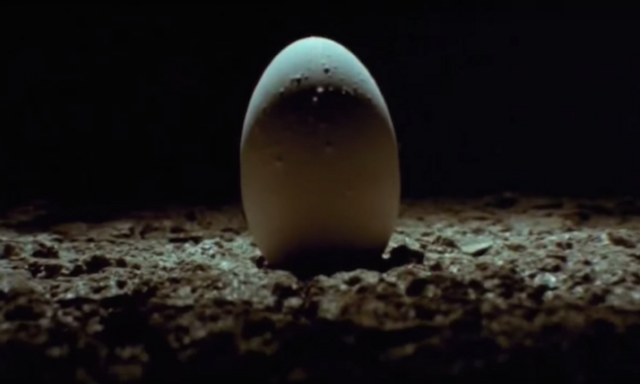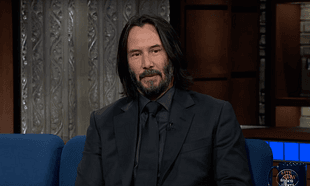For the average film punter, the effort that goes into promoting a film and gaining traction for it almost always flies over their head.
With the advent of the Internet and social media, there are so many platforms in which marketing has an influence and an impact. Trying to cut through the noise and push a film out takes the work of many dedicated professionals and the latest in software. In the pre-Internet age, the trailer did most of the legwork. When the first of the Star Wars prequels, The Phantom Menace, debuted its trailer, eager fans actually went to cinemas and bought a ticket just so they could sit and watch the trailer. They'd then get up from their seats and leave once the trailer was done.
Since faster Internet and, of course, YouTube landed on the scene, trailers are now an everyday part of our film experience. Entire channels have been devoted to trailers, reactions to them, hyper-analysing them and scrutinising them for clues and pointers to a film. Hell, we do it ourselves on a fairly regular basis. But what's interesting is how, say in the last ten to fifteen years, the trailer has gone from a taste of the film's tone and a general overview of what it's all about to a full-blown synopsis of the film.
Let's take the trailer for the 1979 sci-fi classic, Alien. Arguably the greatest trailer ever made. There's no dialogue, no music, just cuts of the various pieces of action in the film to the soundtrack of an alarm, followed by pitched silence and the logline. That's it. That's all you needed to know about the film and it told you everything and nothing about it. It was perfect, a work of minimalist genius and a credit to Ridley Scott's eye for marketing. You didn't even see the alien in question. After all, the man had spent years honing his craft and sense of brevity from making advertisements for television.
Now, let's look a more recent example. The trailer for Batman v Superman: Dawn of Superman has over 16,000,000 views on YouTube and was scrutinised heavily by avid fans. In reality, it didn't need to be. It had the entire story condensed into three minutes. Clark Kent meeting Bruce Wayne for the first time, Wayne's opposition to Superman, followed by Alfred's warning against fighting him, followed by a callback to Man of Steel. It revealed everything about the story, Superman's internal conflict, Batman's impotent rage against him, the fact that Superman and Lois Lane were in a relationship, it even showed the mysterious villain and Wonder Woman all in within 180 seconds. When you look at the film and look at the trailer, you really are getting a condensed version of it.
This might be an egregious example, but there's many films that have been utterly spoiled by overzealous trailers that try to force the entire story arc into a YouTube video in the hopes that it'll trend on Twitter. The most obvious question is why studios would want to give all of this when it's telling the entire story in shorter format. Directors, too, have been openly vocal about trailers for their films not representing the finished product. Simon Pegg was open about his distaste for Star Trek Beyond's trailer whilst Duncan Jones, the director of Warcraft, was less than complimentary about the use of dubstep in one of the film's final trailers.
Given how there is a glut of information available on the Internet, you can easily find out the entire plot of a film with a few short clicks. It's increasingly rare for directors to withhold information about their films and actively try to misdirect the public from the film's plot or themes. Christopher Nolan and JJ Abrams are two obvious examples of directors who actively work against the grain in this front. For Inception, Nolan gave almost nothing away about the film. Each and every one of the trailers for the film neglected to mention the fact that the film was set inside people's dreams. Sure, it might have said 'YOUR MIND IS THE SCENE OF THE CRIME', but what does that mean?
There's never been any official explanation as to why modern trailers are giving away each and every facet of information about a film. There are probably more films released now than there ever have been, with studios churning out franchises and sequels with increasing regularity. In order to stay ahead of the curve and entice audiences, they may feel they have to remove some of the mystique surrounding a film. To them, it needs to spelled out for audiences in broad terms so that they'll specifically choose their films over others. It could be that the plot will be revealed via set leaks or Internet rumours - so why bother trying to cover it all up?
It could also be that audiences respond more to films where they're made fully aware of what it's about and choose to watch it. There's so much content now that, in order to cut through it all, it has to be compelling and it has tell you everything you need to know about the film in two minutes or less. Trailers weren't supposed to be a full recommendation or a synopsised film; they're supposed to give you a feel for the film without explicitly telling you what it is. For all the fans who complain about trailers spoiling the story or plot or a film, it's clear that the strategy is working because - and this point should be patently clear - studios are watching you and what you're saying. Major studios are innately aware of what the average punter wants and they're in the business of providing it to them.
Marketing executives for these studios read almost everything. YouTube comments, reviews, Twitter, anything that can provide them a sense of what the audience is saying to them. When it's bad, they notice and they notice quickly. When the spoiler-riddled trailer for Batman v Superman: Dawn of Justice hit the Internet, you can be guaranteed that somewhere in Warner Bros., there was an executive who got their ass handed to them because of the negative reaction to it. The same was probably true of Paramount and Terminator: Genisys will actually revealed a huge plot-twist in one of its trailers.
If there is to be a change, if studios are to move back to the more considered approach to trailers, people have to stop watching the ones that are giving it all away. But, therein lies the problem, how can you unsee a spoiler-ridden trailer?










































































